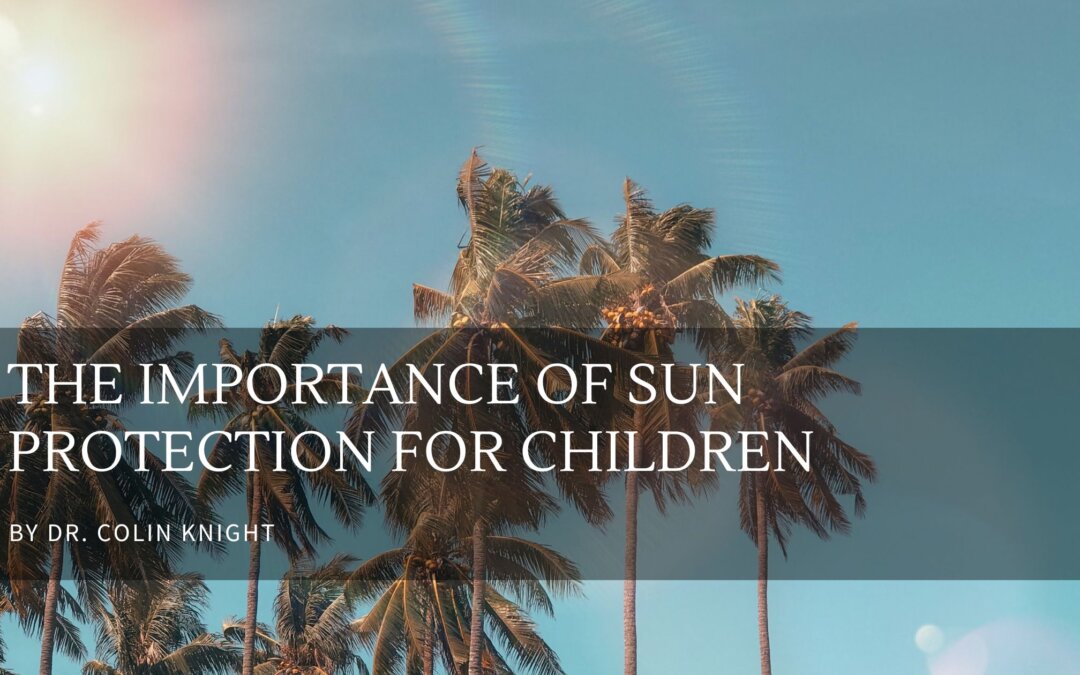Sun protection is a crucial aspect of children’s health that often goes overlooked. While outdoor activities provide numerous benefits, prolonged and unprotected exposure to the sun’s harmful ultraviolet (UV) rays can have long-lasting effects on a child’s delicate skin. The sun is a disfiguring carcinogen – if it were a corporation, there would have been a class-action lawsuit against it years ago!
Many don’t understand the potential risks that excessive sun exposure poses to children. Their tender skin is more susceptible to damage from UV radiation than adult skin, making them more vulnerable to sunburns. Sunburns may seem harmless, but they can cause significant discomfort, pain, and long-term consequences, like an increased risk of skin cancer later in life. Moreover, sunburns experienced during childhood can have a cumulative effect, further amplifying the dangers of skin damage in adulthood.
In addition to sunburn, prolonged sun exposure without protection can lead to other skin-related issues. Children who frequently experience sunburns are more likely to develop premature aging signs, including wrinkles, age spots, and a loss of skin elasticity. Furthermore, UV radiation can weaken the immune system, potentially making children susceptible to various infections and diseases.
Adopt effective sun protection strategies by limiting exposure to direct sunlight during peak UV hours, typically between 10 and 4. Seek shade under trees, umbrellas, or canopies to reduce direct exposure. It is also crucial to teach children the importance of seeking shade and staying indoors during these peak hours.
Another vital component of sun protection is using sunscreen. To guarantee appropriate defense against UVA and UVB radiation, choose a broad-spectrum sunscreen with an SPF of 30 or higher. At least 15 minutes before going outside, evenly and liberally apply sunscreen to all exposed skin. Reapply every couple of hours, covering frequently forgotten areas such as feet tops, necks, and backs.
In addition, encouraging children to wear appropriate clothing is also crucial in minimizing sun exposure. Opt for lightweight, loose-fitting clothing that covers the arms and legs. Wide-brimmed hats are highly recommended to shield the face, neck, and ears from direct sunlight. Additionally, sunglasses with UV protection can safeguard their delicate eyes from harmful rays.
Lastly, it is vital to lead by example and educate children about sun protection. Teach them about the dangers of excessive sun exposure and the importance of protection measures. Make sun safety a routine part of their lives, like brushing their teeth or wearing seatbelts. By instilling these habits early on, you equip children with the knowledge and tools to protect themselves from the sun’s harmful rays.
Ensuring adequate sun protection for children is of paramount importance. Their delicate skin makes them more susceptible to the damaging effects of UV radiation. By understanding the risks associated with sun exposure and implementing effective sun protection strategies, parents can play an active role in safeguarding their children’s health. Remember, a little extra effort in sun protection today can go a long way in preventing potential harm and ensuring a healthier future for our little ones.
